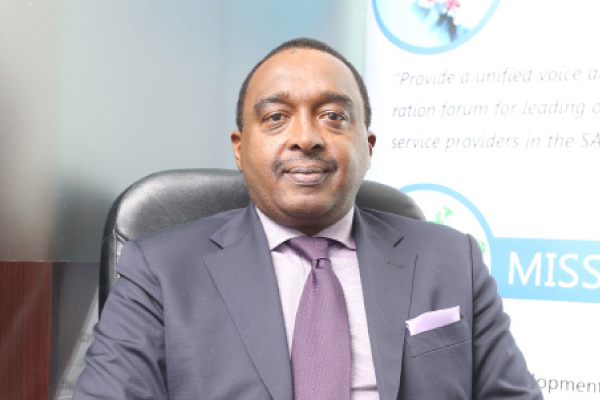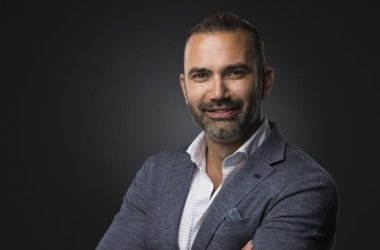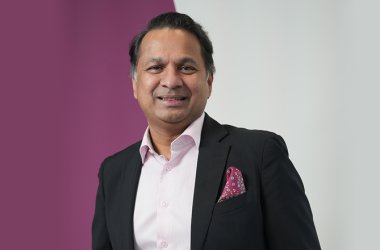Telecommunications and connectivity are becoming hot political topics. As both sides debate regulation versus market freedom, Bocar Ba, CEO, SAMENA Telecommunications Council is tasked with reminding parties with different interests of their common goals.
It is no secret that the world of telecommunications is becoming increasingly political. Discussions on telecoms are now dotted with questions on government legislation – whether or not connectivity is a human right, or perhaps should be treated as a utility. At its worst, this conversation can disintegrate into an all-out battle with telecoms operators on one side and government agencies on the other, leaving the everyday consumer to deal with the aftermath.
No one knows the back and forth of the battle of telecommunication regulation better than Bocar Ba, CEO, SAMENA Telecommunications Council. Headquartered in the UAE, SAMENA Council was launched in 2006. SAMENA is driven primarily to represent telecommunications operators and service providers in the region when it comes to policy development. However, as a not-for-profit, it holds no political affiliation. The members of SAMENA are telecom vendors, technology companies, cellular and fixed-line operators, consultancy groups and telecom regulatory bodies.
“The goal of SAMENA,” says Ba, “is to bring people together to have a conversation.” Essentially, the hope is to strip away some of the potential animosity, and allow two parties compromise. Though SAMENA has a mandate to voice the interest of telecommunication service providers to policy-making entities, the true goal, says Ba, is working together to build a consensus.
A major issue on the table is that of Big Data. Users are creating more and more data, and with the Internet of Things most certainly coming in to play, that trend is only set to accellerate. As users rely more heavily on smart devices, the burden lies on the telecoms providers to manage this flood of data. “We are spending more on bigger fatter pipes to accommodate the flow of data,” says Ba. “The question is, as we expand these networks to deal with this flow of data, who will be responsible for funding the infrastructure. The question is whether or not the telecom operators will keep spending, or will the expansion of the network be funded by a third party – either governments, or someone else.”
The conversation now, says Ba, is between telecoms and Over-the-Top users that are directly benefitting from the the expansion of the network. “The question is, who should pay for having access to the network. The capex has to be shared by someone.”
This issue leads directly into the discussion on net neutrality. The question of how connectivity should be regulated, and by whom, is a hotly debated topic with opponents arguing for the freedom of broadband service providers to manage their own networks, and supporters pushing that ISPs should enable access to all content and applications regardless of the source.
“Many telcoms operators want to treat connectivity like commercial aviation – you have economy, business and first class depending on how much you pay,” explains Ba. “However, the legitimate concern of telcoms operators is that someone, eventually, must pay for the expansion of the network.” In short, there is some concern as to whether or not net neutrality is sustainable in the long term.
Many of these issues come down to a matter of government regulation. “We are not against government regulation,” says Ba, “but regulation is like cholestoral – there is good and bad. What we want is to ensure that all stakeholders have a voice in the development of any guidance or regulation that will affect business.
“Of course, SAMENA represents the interests of the telecoms providers,” says Ba candidly, “but in these situations there should be no losers. Everyone should walk away with some level of satisfaction.” To that end, Ba sets to outline the common goals of each party. “We want to bring people who have different interests together,” says Ba.
The common goal in the Middle East is progress, says Ba. “In the Middle East we see enormous growth,” he says. “We aim to support the development of smart cities and the building of digital economies.” To support this growth, he says, the region needs to deal with a number of issues, including an inevitable broadband spectrum crunch.
“The SAMENA Council calls for positive collaboration on these issues,” says Ba. “There is not currently one solution on the table, but instead we have many avenues that we can choose to go down. We are only going to be able to make the right decisions for the region with good will from all parties.”
Telecommunications and ICT in general are no longer industry verticals. Moreover, connectivity is the backbone of all industries. As this layer penetrates all aspects of daily life, ICT becomes the enabler of the enablers. “Telecommunications supports all activities for the good of society,” says Bocar. As we become more reliant on connectivity enabled services, however, it is important to keep in mind how all this activity will be funded and regulated in the future.





